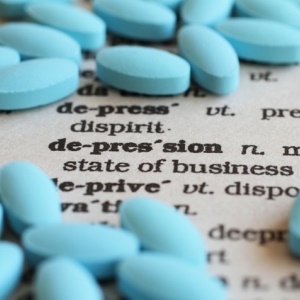
Medication can help millions of people who struggle with depression, according to experts in the psychiatric field.
Depression affects some 350 million people worldwide. It's a serious illness and a major cause of disability. But its symptoms can be mistaken for other health issues and some people are afraid to seek help.
Not everyone needs medication
The South African situation is no different, although data on suicides and other unintentional-injury deaths are not systematically tracked by any agency in the country. According to the SA Depression and Anxiety Group (SADAG), up to 75% of citizens will not get the mental health treatment they need.
For example, over four million South Africans (3 to 4% of the population) have Bipolar Disorder, a disease that is still incredibly stigmatized by society.
Not everyone with depression needs medicine. But drugs used to treat it – antidepressants – can help ease symptoms, such as:
- A depressed mood (possibly irritability in children)
- Loss of interest or pleasure in previously enjoyed activities
- Appetite changes with significant weight loss (when not dieting) or weight gain
- Increased sleep or insomnia
- Slowing or speeding up of physical activity
- Fatigue or loss of energy
- Feeling of worthlessness or excessive or inappropriate guilt
- Decreased ability to think or concentrate, or indecisiveness
- Recurrent thoughts of death or recurrent suicidal ideation
Doctors consider these symptoms – as well as a patient's medical history, behaviour and mental status – to diagnose depression and rule out other health issues, including thyroid disease and Parkinson's disease.
Doctors should also evaluate patients for bipolar disorder, which can cause major mood swings. Giving antidepressants to someone with bipolar disorder could lead to psychosis, according to the FDA.
Several types of antidepressants
Antidepressants help treat depression by changing brain chemicals called neurotransmitters – such as serotonin, norepinephrine and dopamine – that help regulate mood.
There are several different types of antidepressants, which affect different neurotransmitters in different ways. Antidepressants include:
- Selective serotonin reuptake inhibitors (SSRIs), including Prozac (fluoxetine), Celexa (citalopram) and Paxil (paroxetine)
- Serotonin norepinephrine reuptake inhibitors (SNRIs), including Effexor (venlafaxine) and Cymbalta (duloxetine)
- Tricyclic antidepressants (TCAs), including Elavil (amitriptyline), Tofranil (imipramine) and Pamelor (nortriptyline)
- Monoamine oxidase inhibitors (MAOIs), including Nardil (phenelzine) and Parnate (tranylcypromine)
- Other antidepressants include Remeron (mirtazapine) and Wellbutrin (buproprion)
"Some evidence shows that the most effective way to treat many patients with depression is through both talk therapy and prescribed antidepressant medication," Dr Mitchell Mathis, director of the FDA's division of psychiatry products, said in an agency news release.
Taking antidepressants may cause complications, including birth defects and high blood pressure. Other possible side effects include:
- Nausea and vomiting
- Weight gain
- Diarrhoea
- Sleeping problems
- Sexual problems
It's important for patients to work with their doctor to find the best treatment for them, Mathis said.
Suicidal thoughts
But medication won't ease depression overnight. Most patients must take their prescribed drugs for several weeks before they fully take effect.
And people who take antidepressants should not stop without talking to their doctor first – even if they feel better. Suddenly discontinuing this medicine could cause depression to return or lead to withdrawal symptoms, such as anxiety and irritability.
The FDA requested drug makers to put a warning label on these drugs about the increased risk of suicidal thinking or behaviour when children, teens and young adults up to age 24 start treatment or their dosage increases.
If you have suicidal thoughts or know someone who does, or you observe suicidal behaviours, seek immediate medical help. Contact The South African Depression and Anxiety Group on their 24hr Helpline: 0800 12 13 14.
Read more:




 Publications
Publications
 Partners
Partners










